4 Pros And Cons To Running Barefoot

While some people will spend their time carefully pouring over reviews and discussions about types of shoes, there are others that are out running. The question of best runners or trainers doesn’t bother them because they have found an alternative.
It’s low key. It’s virtually free. And it is the most natural way to run. It’s called running barefoot!
That may sound archaic and out of step with our modern reality, but the growing trend of barefoot running would say otherwise. For some people, this unique practice has benefits that they were not finding while running in shoes.
Read also about best minimalist sandals.
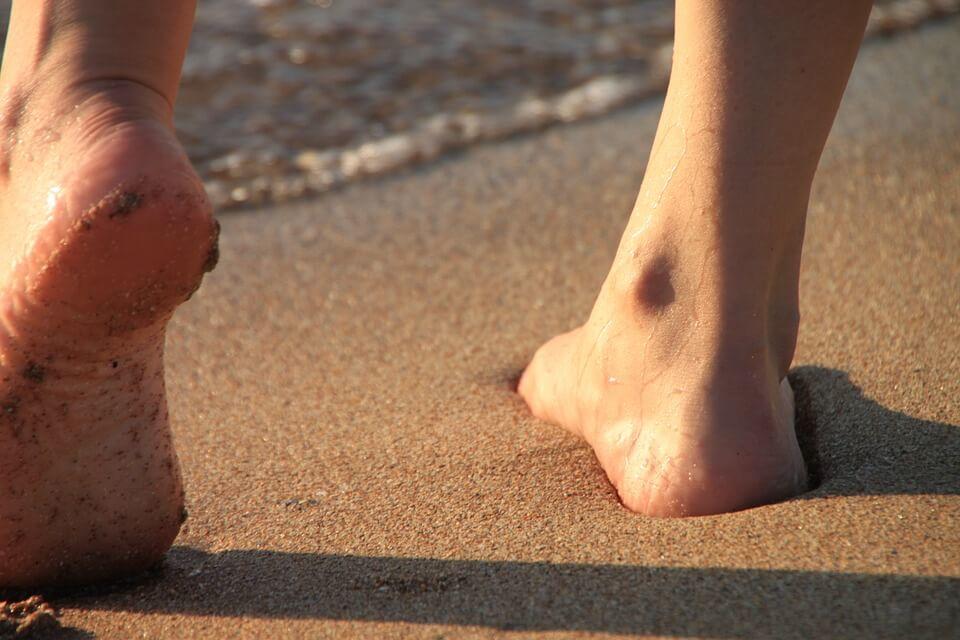
That isn’t to say that there aren’t risks to running without shoes. There are, as there are risks with any kind of physical activity. But some have weighed the pros and cons, decided this was right for them. We hear to share with you the information so that you can make an informed decision, and see if running barefoot is for you.
Here are 4 pros and cons to running barefoot.
Pro #1: It Strengthens Important Areas
Shoes advertise their ability to give you ankle support, but nothing works as well as running barefoot. By removing the shoes, and the lift from the excessive padding, your feet and legs have a chance to strengthen in some very important areas. Those would include the Achilles’ tendon and your calf muscles.
This isn’t to say that runners that wear shoes are weak in these particular areas, but by running barefoot, you are giving them a chance to grow and develop as your body was intended to. There is no coddling of the muscles, rather a more direct and natural development of essential running muscles.
Pro #2: It Reduces Injuries (Sort of)
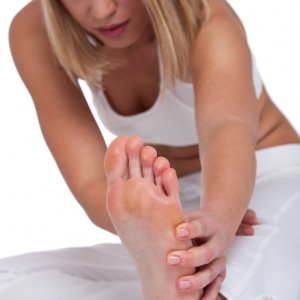
By removing your shoes, and giving parts of your body like the Achilles’ tendon and calf muscles a chance to strengthen naturally, you will reduce the kinds of injuries common to runners. Not that running barefoot will eliminate all injuries, but this kind of running will help to reduce the number of pulls and tendinitis that you experience in your career.
And any runner will tell you how devastating a pull or tendinitis can be. How fortunate that running barefoot gives you an advantage that shoes never could.
Pro #3: It Improves Balance
Another benefit to running barefoot, over strengthened muscles and reduced injuries, is an improvement in balance. A runner is nothing if they can’t stay upright on their own two feet.
By running without shoes, you are giving smaller muscles in your body a chance to be active and strengthened. These muscles aren’t only located in the foot, but also the ankles, legs, and hips. Some runner mentioned that they felt that they could expand their toes when not wearing shoes, giving them a more solid and connected base.
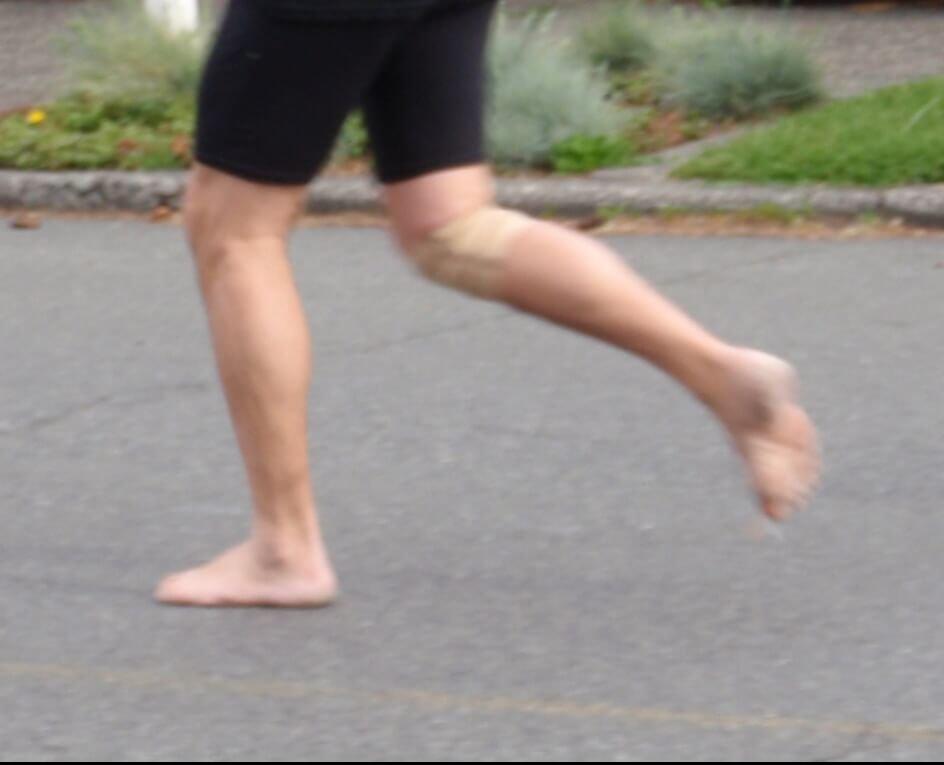
Pro #4: It Improves Your Stride
Most of us have been running in shoes all our lives, and we were told to run in a particular manner. “Heel-toe.” These words were instruction on how to properly run, how to have a good stride. The heel should hit the ground first, then roll the foot towards the toe until the stride is complete. Repeat with each stride and you will have a great running stride.
However, this was and is the method taught because of the excessive padding that comes in most shoes. Researchers continue to see and report that this “heel-toe” method of running is not natural, and is in fact a less effective way of running. They encourage barefoot running.
Running heel first causes a break in the stride of a runner. To have a truly smooth stride, it is recommended to land on your forefoot. This creates a light, less jarring motion. It helps create forward momentum, rather than putting on the brakes. While it is possible to do this while wearing shoes, it comes much more naturally and effortlessly when running barefoot.
Con #1: No Pain? No Problem
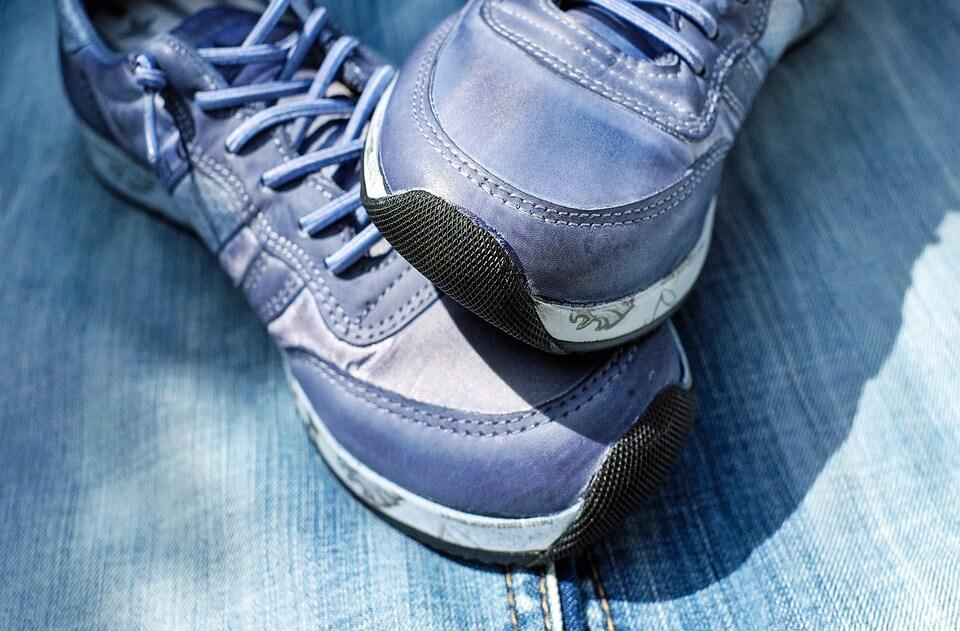
The old saying goes, “If it ain’t broke, don’t fix it.” And that can go for your running habits as well. If you are not experiencing pain or discomfort in your running, there is no real reason to change it. Running with shoes may cause some people discomfort or actual pain, but if that isn’t you, then there isn’t a reason that you should be running barefoot.
Some people will encounter pain transitioning from running with minimal shoes to running barefoot. If even the idea of pain turns you off, then barefoot running is not for you.
Con #2: It Offers Little To No Protection
One of the nice things about running in shoes is that your feet are protected from anything you might accidentally step on. Running barefoot offers no protection at all. A piece of glass on the beach or the rough stones you need to cross over on the path can do serious damage to your feet.
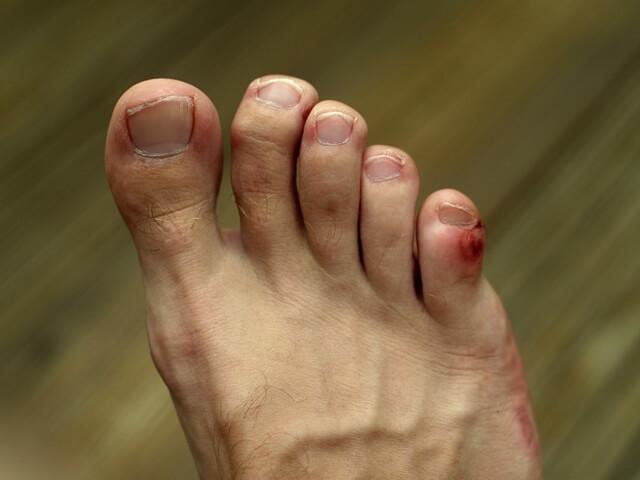
After running barefoot for some time, your feet will naturally toughen and develop calluses. But that is not nearly enough protection for some seen and unseen hazards that can be waiting for you during your run. Barefoot running leaves you exposed, in a very dangerous way.
Con #3: It Limits Running Space
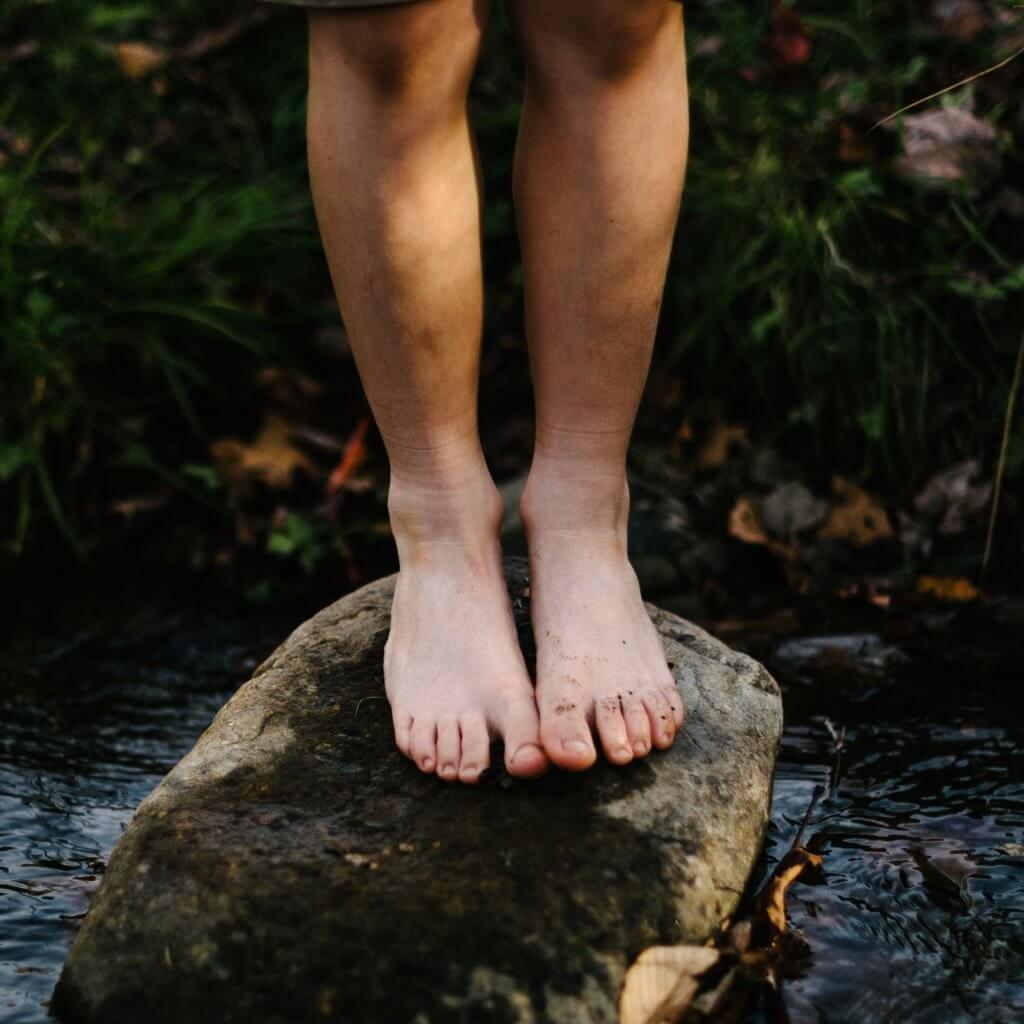
As a runner, the world is filled with places you can go. Parks, gyms, tracks, around the block; these are just a few of the areas where you are free to run. But not necessarily if you are running barefoot.
Running on concrete or gravel paths can be painful. Most gyms or tracks require some form of footwear to use their facilities. Because this is the case, running barefoot really narrows down your options for where you can go, and where you can run safely. Unless you know of a park or gym that will let you run barefoot, or you are willing to run on a treadmill in your basement, the locations to run barefoot are extremely limited.
Con #4: People Will Stare
This might be the most selfish con, but for some people it is a deal break. Running barefoot might be a growing trend, but that doesn’t mean that it is normal. If you go running barefoot down the path or in your neighborhood, chances are good that people are going to stare at you.
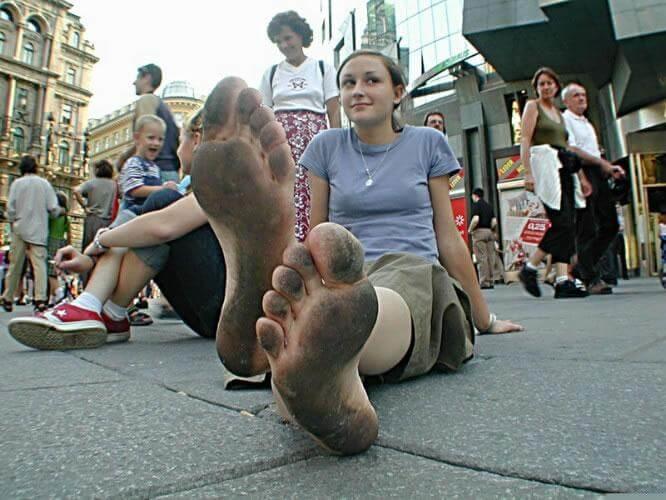
Not wearing shoes might seem weird to them, and they will make a weird face at you. For a self-conscious person, that is not something you want. You rather blend into the crowd than stand out. Running barefoot will most certainly make you stand out, even in the runner’s circles.
Conclusion
Whatever shoes you choose to wear, there are pros and cons. Whether you choose to wear shoes at all, there are pros and cons. Before you decide to try this up and coming trend in the world of running, make sure that you take the time to consider the pros and cons. It might not be for you. Or running barefoot could be the best decision you made for your running career.
And remember, there’s always an alternative with minimalistic toe shoes! You’re welcome!
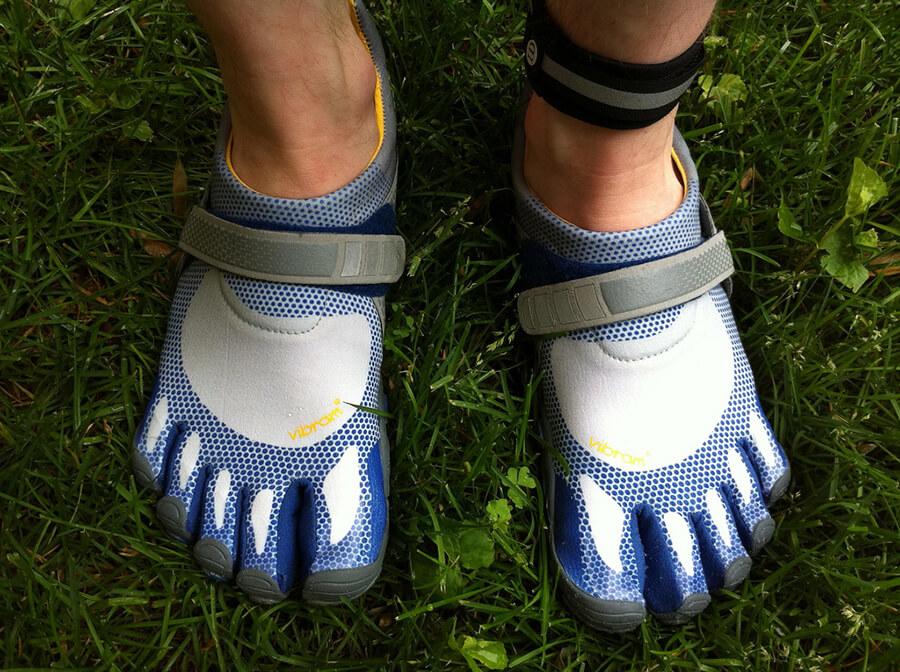
Latest Articles
 Is Running on a Treadmill Easier Than Running Outside?Runners have their own preferences, whether it is treadmill running, running outside on the road, or exploring trails. So...
Is Running on a Treadmill Easier Than Running Outside?Runners have their own preferences, whether it is treadmill running, running outside on the road, or exploring trails. So... Is It OK to Use Trail Running Shoes on the Road?While trail running shoes can be used on roads, especially in situations where a runner encounters mixed terrains or pref...
Is It OK to Use Trail Running Shoes on the Road?While trail running shoes can be used on roads, especially in situations where a runner encounters mixed terrains or pref... How to Fix Sore Quads After Running?Rest, ice, gentle stretching, and over-the-counter pain relievers can help soothe sore quads after running. Also, ensure ...
How to Fix Sore Quads After Running?Rest, ice, gentle stretching, and over-the-counter pain relievers can help soothe sore quads after running. Also, ensure ... 10 Fruits With The Most Electrolytes to Replace Sports DrinksThese fruits are high in electrolytes such as potassium, magnesium, and calcium, essential for hydration, muscle function...
10 Fruits With The Most Electrolytes to Replace Sports DrinksThese fruits are high in electrolytes such as potassium, magnesium, and calcium, essential for hydration, muscle function...

